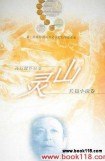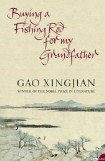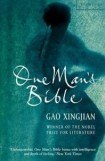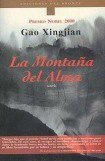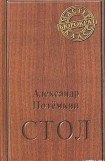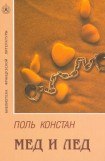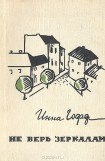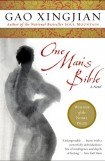
One Man's Bible is the second novel by Nobel Prize-winning author Gao Xingjian to appear in English. Following on the heels of his highly praised Soul Mountain , this later work is as candid as the first, and written with the same grace and beauty.
In a Hong Kong hotel room in 1996, Gao Xingjian's lover, Marguerite, stirs up his memories of childhood and early adult life under the shadow of Mao Zedong and the Cultural Revolution. Gao has been living in self-imposed exile in France and has traveled to this Western-influenced Chinese city-state, so close to his homeland, for the staging of one of his plays.
What follows is a fictionalized account of Gao Xingjian's life under the Communist regime. Whether in "beehive" offices in Beijing or in isolated rural towns, daily life is riddled with paranoia and fear, as revolutionaries, counterrevolutionaries, reactionaries, counterreactionaries, and government propaganda turn citizens against one another. It is a place where a single sentence spoken ten years earlier can make one an enemy of the state. Gao evokes the spiritual torture of political and intellectual repression in graphic detail, including the heartbreaking betrayals he suffers in his relationships with women and men alike.
One Man's Bible is a profound meditation on the essence of writing, on exile, on the effects of political oppression on the human spirit, and on how the human spirit can triumph.
***
One Man's Bible belongs to that sad class of books sold on the strength of their authors having won a prize. But a prize is rather a thin argument for reading it, especially in a wooden English translation. Does one want to know more about Gao Xingjian than his first novel translated into English, Soul Mountain, told? That book had just enough exotic colour to survive its translation; from its portentous title onwards, One Man's Bible has much less going for it. It needs more story, structure, people, situations, atmosphere, ideas – anything strong enough to come through the obscuring veil of alien words.
When, in 2001, Gao became the first Chinese writer to win a Nobel prize for literature, it came as a surprise. The Chinese literary bureaucrats – today's counterparts of the strange Soviet creatures in Bulgakov's The Master and Margarita – had long been pushing for one of their trusties to win. Gao was certainly not one of those, but neither was he prominent in any of the exiled literary cliques. Since being driven to leave China in the 1980s he had been living in France, writing supposedly experimental, sub-Beckettian plays with Chinese characteristics that some critics in the Chinese-speaking world thought worth discussing. These plays also suited small, subsidised European theatre companies in search of uncommercial exotica full of the timeless wisdom of the east. While still in China, Gao was best known for Bus Stop, a one-acter about people waiting for a bus that never came. What delighted audiences and infuriated the authorities when the play appeared some 20 years ago was its apparent implied message: the never-arriving bus was the wonderful future that the regime promised but could not deliver.
Soul Mountain was fiction in the form of an autobiography (or vice versa) that told a fragmented tale of a writer on the run in the wilder reaches of the Yangtze valley. The background chimed with Gao's own flight from the thought police, as well as being a celebration of "authentic" China surviving 40 years of the party state in remote and picturesque areas. There was quite a lot of sex, too.
One Man's Bible also invites us to read its central character, again an author, as an alter ego of Gao's. As he looks back from cosmopolitan exile in the present – the book was written in the late 1990s – on his life in China, this author makes much of feeling uncomfortable, and wallows in sententiousness. The book starts with a bourgeois childhood before the Communists seized power in 1949 (when the real Gao was eight or nine), moving on to his family's and his own troubles in the unending series of political campaigns that ran through the Mao era and its aftermath. Much of it deals with the cultural revolution, with our hero as participant as well as victim in a hellish process, and with how all this made him what he is now. Between the earlier life and the recent past there is a gap where Soul Mountain might fit.
Like Gao, the central figure in One Man's Bible is an exile based in France who writes fiction and drama in his own language. He enjoys the freedom not to be caught up in politics, and wonders how he came to be what he is. Invitations to events on the international cultural circuit give us scenes in Hong Kong, Sydney, New York, Perpignan and elsewhere, all of which are much the same. None of it seems to matter very much in comparison with the seriously deranged political movements of his youth which, though hindsight tells him they were wrong, he savours the discomfort of remembering.
If Soul Mountain explored China and Chineseness, One Man's Bible is all about enjoying feeling guilty, but not too guilty. It is about not being at home anywhere, not even in your own skin, and making the best of it; about the middle-aged worry over what you were when you were younger. As the central figure looks back over his life, he tries to accept the great realisation that it hasn't meant anything. Yet for all his attempts to be sophisticated, he can't help but feel disappointed at the pointlessness of life. He has not got over the Maoist urge to preach, though it is now a different sermon.
In the past 20 years, having a hard time under the Communist party dictatorship has been the stuff of a commercially flourishing genre of autobiographical writing in English by people, especially women, who have got out. Gao is not into that sort of soppy stuff. His fiction has rather more in common with a newer popular sub-genre of Chinese fiction for foreign readers: unillusioned fucklit, by younger women writers. The China his central character has left was an awful place, but one that gave him access to plenty of women's bodies. The west has given him freedom and more women for his bed, but not happiness or meaning. It has allowed him to hold forth on life and art, even if what he has to say is banal.
As a self-conscious follower of European modernism, Gao does not give us this fictional life in a chronological sequence. He assumes that readers can find their way through the cut-up narrative of the cultural revolution, picking up references as Chinese people of his generation will be able to. Yet most foreigners will simply be confused. They are more likely to follow the novel through the unending couplings with which its subject tries to fill the voids in his past and present lives. We start with a German-Jewish woman in Hong Kong, where one of his plays is being staged. There is another in France, and others collected elsewhere on his travels, as well as the various sexual partners in his earlier life in China. But on the whole, the bodies do not seem to have brains.
The ideas in One Man's Bible are commonplace, its characters are ciphers, and it is not redeemed by wit, grace or self-mockery. Its solipsism is banal. I hope we will not have to endure a third novel in this series on the splendours and miseries of being a Nobel prize-winner.
WJF Jenner is a translator and expert on Chinese writing.
Скачано: 10 раз
Прочитано: 2192 раз
Чтобы скачать One Man бесплатно в формате fb2, txt, epub для андроид, iPhone, iPad, iBooks, на телефон или на планшет выберите подходящий формат книги из представленных ниже. Хотите читать онлайн книгу One Man перейдите по указанной ниже ссылке.
One Man читать онлайн
